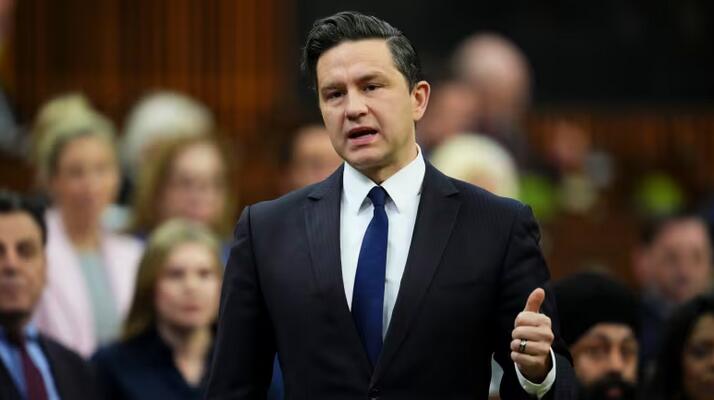Conservative leader Pierre Poilievre says he would use “whatever tools the constitution allows” to pass criminal justice laws if his party forms the next government.
Speaking to the Canadian Police Association on Monday, Poilievre promised to implement more stringent requirements for bail and make it harder for convicted murderers to transfer out of maximum security prisons.
“All of my proposals are constitutional,” Poilievre said.
“We will make them constitutional using whatever tools the constitution allows me to use to make them constitutional. I think you know exactly what I mean.”
Poilievre didn’t explicitly say what tools he was referring to and his office provided no official comment when asked for clarification.
In the past, the Tory leader said he would use the notwithstanding clause to overturn a 2022 Supreme Court decision that struck down a law that gave judges discretion to hand out consecutive, 25-year blocks of parole ineligibility if an offender has committed multiple first-degree murders.
That decision came in the case of Alexandre Bissonette who killed six people in a Quebec City mosque in 2017. At the time of the ruling, Poilievre said he would use the notwithstanding clause to reinstate that law.

The courts have struck down a number of other criminal laws passed by the Stephen Harper government in recent years — including some laws around mandatory minimum sentences.
The notwithstanding clause, or Section 33 of the Canadian Charter of Rights and Freedoms, gives parliaments in Canada the power to override certain portions of the charter for five-year terms when passing legislation.
Once invoked, Section 33 prevents any judicial review of the legislation in question.
“I will be the democratically elected prime minister, democratically accountable to the people and they can then make the judgments themselves on whether they think my laws are constitutional,” Poilievre said in his speech on Monday.

Errol Mendes, a law professor at the University of Ottawa, told CBC News that in cases where the Supreme Court has made a ruling, the only option a government would have is using Section 33.
No federal government has used the clause, but a number of provincial governments have. Quebec invoked the clause in passing a language reform law that limits the use of English in the public service. Ontario also used it to pass back-to-work legislation for education workers in 2022.
Mendes cautioned that using the clause at the federal level would send a signal to provincial governments and could lead to normalizing its use.
“Essentially it would be the straw that’ll break the camel’s back and lead to eventually the denigration of the Charter as a whole,” he said.
“It really shows there has not been a thought given to the long-term impact on Canada if we allow this thing to be used so frequently.”

